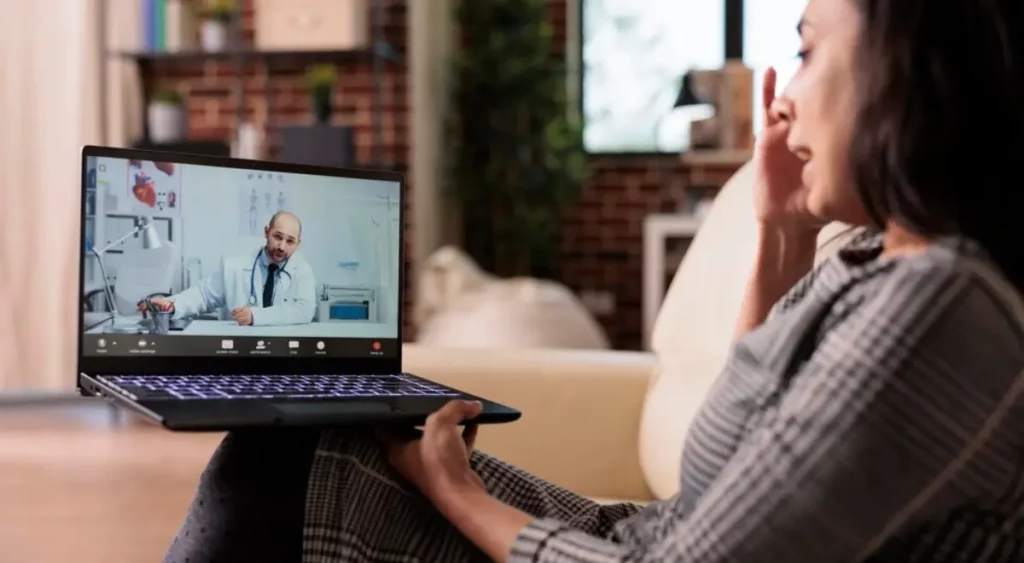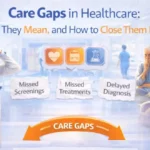Remote Therapeutic Monitoring: A Must-Have for Providers

Remote Therapeutic Monitoring (RTM) expands digital health beyond vitals. It tracks musculoskeletal, respiratory, and therapy-related progress, giving providers deeper insights into patient recovery, adherence, and functional outcomes while opening new Medicare revenue opportunities.
Remote Therapeutic Monitoring (RTM) enhances at-home care for people with musculoskeletal, respiratory conditions, and Cognitive Behavioral Therapy (CBT). It increases patient engagement in their treatment plan and provides virtual monitoring in between clinic appointments.
RTM collects non-physiological data from patients such as anxiety, depression, pain, fatigue, sleep, appetite, exercise, and medication and therapy adherence.
Table of Contents
ToggleWhat is Remote Therapeutic Monitoring?
- Musculoskeletal: In musculoskeletal terms, RTM refers to the rehabilitation or physical therapy of patients to manage their symptoms. Pain management, therapy adherence, exhaustion, and strength are all important criteria to track. Patient self-reported data is frequently used to track these.
- Respiratory: In terms of respiratory illnesses like asthma Chronic Obstructive Pulmonary Disease (COPD), RTM is condition-specific and uses equipment like spirometers and inhalers. Monitoring involves parameters like sleep and adherence to prescribed medicines. Sensors for medication adherence and patient self-reported data are commonly utilized for tracking.
- Cognitive Behavioral Therapy (CBT): For CBT, RTM focuses on monitoring patients’ mental health, particularly anxiety, depression, and other related problems. Sensors for medication adherence and self-reported data from patients help to monitor these symptoms.
CPT Codes for Remote Therapeutic Monitoring (RTM)
As per CMS guidelines, there are 6 RTM CPT codes:
- CPT 98975: The national reimbursement rate for this code is $19.65*. CPT number 98975 is a one-time billing number for initial setup and patient education enrollment.
- CPT 98976 (Respiratory): The national reimbursement rate for this code is $46.83*. CPT Code 98976 is billable once every 30 days and needs 16 distinct days of data collection or assessments of respiratory system condition.
- CPT 98977 (Musculoskeletal): The national reimbursement rate for this code is $46.83*. CPT Code 98977 is billable once every 30 days and needs 16 distinct days of self-reported musculoskeletal system status data.
- CPT 98978: It is the medical procedure code for Cognitive Behavioral Therapy (CBT) and refers to the provision of one or more devices, which includes planned recording and/or programmed alarm transmission, and is reported every 30 days. CPT code 98978 addresses the methodical process of fostering patient involvement and allows healthcare professionals to better understand the patient experience in real time. The national reimbursement for this code is contractor-priced for both facility and non-facility services.
- CPT 98980: CPT Code 98980 is a time-based code that may be billed once every 30 days. It includes the initial 20 minutes of care management and interactive communication with clinical personnel, MDs, or QHCPs. This code requires a minimum of one interactive communication per calendar month. For this code, the average national reimbursement rate is $49.78*.
- CPT 98981: CPT Code 98981 is a time-based code applied for every extra twenty minutes of communication and care management spent by clinical personnel, MDs or QHCPs. For this code, the national reimbursement rate is $39.30*.
(*Reimbursement rates are subject to variation based on state-specific regulations and policies)
How Frequently Can RTM Codes Be Billed?
All six RTM billing codes have variable billing frequency, which can occur concurrently or sequentially throughout an episode of care (EOC).
- Code 98975 can be billed once per EOC, beginning with the activation of the remote therapeutic monitoring service.
- Codes 98976, 98977, and 98978 can be billed every 30 days.
- Code 98980 may be billed once each calendar month for the initial 20 minutes of service, regardless of the number of therapeutic monitoring modalities used that month.
- Code 98981 may be billed once per calendar month for each additional 20 minutes. This code may be billed multiple times every calendar month for each consecutive 20-minute time block.
Codes 98980 and 98981 are calendar-month-specific, time-dependent, and need at least one synchronous communication session, like a phone conversation.
HealthArc’s Integrative Approach to Remote Therapeutic Monitoring
HealthArc provides a unified platform to meet RTM demands and use SMS, web, and mobile app communication with patients to track medication or therapy adherence activities. RTM can also be combined with Chronic Care Management (CCM) or Principal Care Management (PCM) using HealthArc’s unified platform, resulting in a holistic treatment plan. Our solution is intended to improve patient outcomes, increase operational efficiency, and lower costs for healthcare providers. Some of the benefits of HealthArc’s RTM platform include:
- Enhanced Home Support: Improve patient care by offering ongoing support at home in between in-person clinic appointments.
- Enhanced Communication: Improve your relationship with patients by communicating seamlessly between scheduled sessions.
- No Upfront Costs: With HealthArc, you can easily start your RTM journey with no upfront costs or hidden expenses.
- Enhanced Patient Adherence: Increase adherence to at-home care plans with our cutting edge remote assessments and medication adherence solutions, resulting in optimal patient involvement.
- Outcome Tracking: Effectively gather patient-reported outcome indicators to effectively monitor patient’s condition.
- Financial Performance: HealthArc’s RTM solution is designed to optimize clinical workflows and maximize practice revenue.
Key takeaways
- RTM tracks therapy adherence and patient-reported outcomes.
- Covers musculoskeletal, respiratory, and rehab conditions.
- Uses CPT codes 98975, 98976, 98977, 98980, 98981.
- Creates new reimbursement pathways for non-physician providers.
- Enhances recovery, engagement, and value-based care success.
Frequently Asked Questions (FAQs)
RTM is a CMS-approved program that tracks patient therapy data, such as adherence and response, using connected digital tools.
RTM focuses on therapy-related conditions like musculoskeletal and respiratory issues, while RPM monitors physiological vitals.
RTM supports recovery in musculoskeletal disorders, pulmonary conditions, and rehabilitation programs.
RTM uses codes 98975, 98976, 98977, 98980, and 98981 for setup, device supply, and management time.
Physicians, nurse practitioners, and qualified non-physician healthcare professionals, such as physical therapists, can bill for RTM.
Yes. RTM ensures better adherence, timely provider feedback, and faster recovery.
Yes, they can be billed together if services are distinct and properly documented.
RTM opens new reimbursement opportunities, strengthens patient engagement, and supports the shift toward value-based care.
Interested in our remote therapeutic monitoring software? Please request a free demo to learn about how we can help your organization achieve its RTM goals. Also, feel free to talk to our team at (201) 885 5571 for any queries about RTM billing and reimbursement.
Most Recent Blogs
Categories
Related Blog
- August 4, 2025 | Read Time: 18 mins
A Complete Guide to Remote Therapeutic Monitoring (RTM) & Latest Billing Codes
Remote Therapeutic Monitoring (RTM) combines FDA‑approved devices (like smart inhalers, wearable sensors,...
Learn More- June 27, 2024 | Read Time: 8 mins
Remote Therapeutic Monitoring (RTM) For Musculoskeletal Care
The need to provide effective, patient-centered treatment remotely has led to a...
Learn More- May 20, 2024 | Read Time: 9 mins
Remote Therapeutic Monitoring (RTM) & Latest Billing Codes
Remote therapeutic monitoring (RTM) is a digital health technology program that connects...
Learn More


